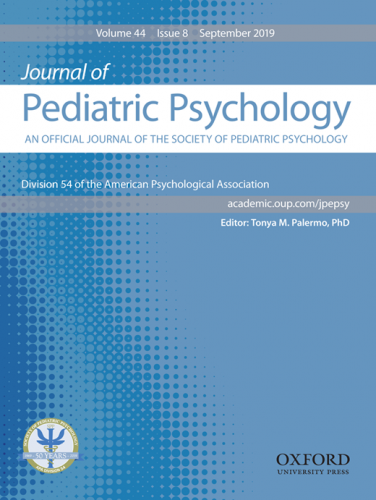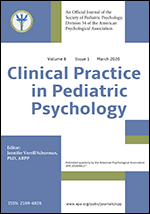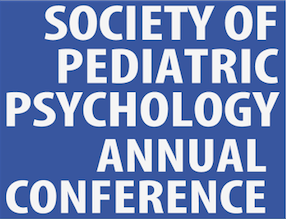Fact Sheet: Sickle Cell Disease
Sickle cell disease (SCD) is a genetic, multisystem disease characterized by vascular injury that is caused by decreased oxygen and blood flow, shorter red blood cell lifespan, resulting in significant medical and neurologic complications.
Prevalence and Course
SCD predominantly affects individuals of African and Hispanic descent, but can also affect individuals from other ethnic groups. In the U.S., SCD has an estimated prevalence of approximately 100,000 of whom 40% are children. Seventy-percent of the total SCD population have the most severe form of the disease (sickle cell anemia or HbSS). In the U.S., universal newborn screening results in individuals now being diagnosed shortly after birth.
Health and Psychosocial Consequences
Health complications of SCD include: acute and chronic pain, pulmonary complications, infections, strokes (overt and silent), anemia, priapism (painful erections) in males, organ damage (e.g., heart, lungs, kidneys, spleen), and bone and joint problems. Health care utilization is increased, including the need for frequent hospital and emergency department visits and regular clinic appointments with multiple disciplines. Psychosocial consequences may include: lower health-related quality of life (HRQOL), health-related stigma, interference from acute and chronic pain, school/work absences resulting in underachievement, cognitive impairment (predominately executive function, attention, and processing speed), and depressive and anxious symptomatology.
Evidence-based Assessment
Areas/domains that are important to assess include: adherence — facilitators and barriers; cognitive and social functioning; pain — frequency, intensity, coping and interference; sleep – nighttime awakenings, nocturnal enuresis, sleep disordered breathing, disruption from pain; and disease-specific HRQOL. Care for the wide array of complications may be complex and often requires consultation with experts in SCD care and management.
Culture, Diversity, Demographic and Developmental Factors
The majority of children in the United States with SCD are Black/African-American with some living in under-resourced environments and experience limited access to health care, increased use of emergency departments, difficulties with transportation to/from appointments, and challenges with adherence. Because pain complaints are subjective in nature they may be treated as false or exaggerated; rapport building and patient-family engagement is essential. Patients and families of individuals with SCD report experiencing racial bias and stigma. Factors that contribute to stigma in SCD include disease status, pain and opioid use, disease severity, and sociodemographic characteristics. Stigma can hinder physiological and psychological wellbeing and impair healthcare interactions.
Barriers may be magnified during the transition from pediatric to adult care, and developmental level should be considered to ensure successful disease management and adherence. Children and adolescents with SCD may experience low self-esteem, embarrassment, and depression related to school absenteeism, seeking care for acute pain, and decreased social activities. There is an increased risk for cognitive deficits in children with and without stroke, which affects academic and social outcomes. Positive family functioning may ameliorate the risk of poor physical and psychosocial outcomes for youth with SCD.
Evidence-based Interventions
Systematic reviews support the efficacy of cognitive-behavioral interventions, including relaxation and cognitive coping for symptom management. Motivational interviewing strategies are often appropriate and effective in the context of self-management. The neurologic complications of SCD increase the risk for cognitive deficits and academic underachievement. Prevalence rates of developmental disabilities and attentional difficulties are higher than the general population. Developmental screening and neuropsychological testing is appropriate for many children and predicts academic outcomes and stroke risk.
Resources
- Sickle cell disease: Addressing sickle cell disease: A strategic plan and blueprint for action: http://www.nationalacademies.org/hmd/Activities/SelectPops/AddressingSickleCellDisease.aspx
- Division of Blood Diseases and Resources: The management of sickle cell disease: https://www.nhlbi.nih.gov/files/docs/guidelines/sc_mngt.pdf
- Patient/Parent Resource: Hope & Destiny: The Patient and Parent's Guide to Sickle Cell Disease and Sickle Cell Trait (Revised 4th Edition)
- Sickle cell disease and neuropsychological functioning: Pediatric neuropsychology: Medical advances and lifespan outcomes (book chapter)
- Sickle cell disease consultation: Clinician Handbook of Pediatric Psychological Consultation in Medical Settings: Sickle cell disease and hematologic conditions
- Sickle cell disease and treatment adherence: Adherence and Self-Management in Pediatric Populations: Pediatric Sickle Cell Disease (book chapter)
Authors: Lori E. Crosby, PsyD, and Anna M. Hood, PhD
Date of last update: August, 2019
References
- Anie, K.A. & Green, J. (2012), Psychological therapies for sickle cell disease and pain. Cochrane Database of Systematic Reviews. 2 DOI: 10.1002/14651858.CD001916.pub2
- Barakat, L.P., Patterson, C.A., Weinberger, B.S., Simon, K., Gonzalez, E.R., & Dampier, C. (2007). A prospective study of the role of coping and family functioning in health outcomes for adolescents with sickle cell disease. Journal of Pediatric Hematology/Oncology, 29(11):752- 760.
- Bulgin, D., Tanabe, P., & Jenerette, C. (2018). Stigma of Sickle Cell Disease: A Systematic Review. Issues in Mental Health Nursing, 39(8), 675–686.
- Crosby, L. E., Joffe, N. E., Peugh, J., Ware, R. E., & Britto, M. T. (2017). Pilot of the chronic disease self-management program for adolescents and young adults with sickle cell disease. Journal of Adolescent Health, 60(1), 120–123.
- Ghafuri, D. L., Sanger, M., Rodeghier, M., & DeBaun, M. R. (2019). Integrated psychology support and comprehensive cognitive evaluation improves access to special education services for children with sickle cell disease. Pediatric Blood & Cancer, e27755.
- Hassell, K.L. (2010). Population estimates of sickle cell disease in the U.S. American Journal of Preventive Medicine, 38(suppl 4), S512-S521.
- Hood, A. M., King, A. A., Fields, M. E., Ford, A. L., Guilliams, K. P., Hulbert, M. L., … White, D. A. (2019). Higher executive abilities following a blood transfusion in children and young adults with sickle cell disease. Pediatric Blood & Cancer, 0(0), e27899.
- Panepinto, J.A., Pajewski, N.M., Foerster, L.M., Sabnis, S., & Hoffman, R.G. (2009). Impact of family income and sickle cell disease on the health-related quality of life of children. Quality of Life Research, 18(1), 5-13.
- Prussien, K. V, Jordan, L. C., DeBaun, M. R., & Compas, B. E. (2019). Cognitive Function in Sickle Cell Disease Across Domains, Cerebral Infarct Status, and the Lifespan: A Meta-Analysis. Journal of Pediatric Psychology.
- Schatz, J., Schlenz, A. M., Smith, K. E., & Roberts, C. W. (2018). Predictive validity of developmental screening in young children with sickle cell disease: a longitudinal follow‐up study. Developmental Medicine & Child Neurology, 60(5), 520–526.
- Schwartz, L. A., Radcliffe, J., & Barakat, L. P. (2007). The development of a culturally sensitive pediatric pain management intervention for African American adolescents with sickle cell disease. Children’s Healthcare, 36(3), 267–283.
- Treadwell, M., Telfair, J., Gibson, R.W., Johnson, S., & Osunkwo, I. (2010). Transitioning from pediatric to adult care in sickle cell disease: Establishing evidence-based practice and directions for research. American Journal of Hematology, 86(1), 116-120.
- Wills, K. E., Nelson, S. C., Hennessy, J., Nwaneri, M. O., Miskowiec, J., McDonough, E., & Moquist, K. (2010). Transition planning for youth with sickle cell disease: embedding neuropsychological assessment into comprehensive care. Pediatrics, 126(Supplement 3), S151–S159.
- Yawn, B. P., Buchanan, G. R., Afenyi-Annan, A. N., Ballas, S. K., Hassell, K. L., James, A. H., … Savage, W. J. (2014). Management of sickle cell disease: summary of the 2014 evidence-based report by expert panel members. Jama, 312(10), 1033–1048.



